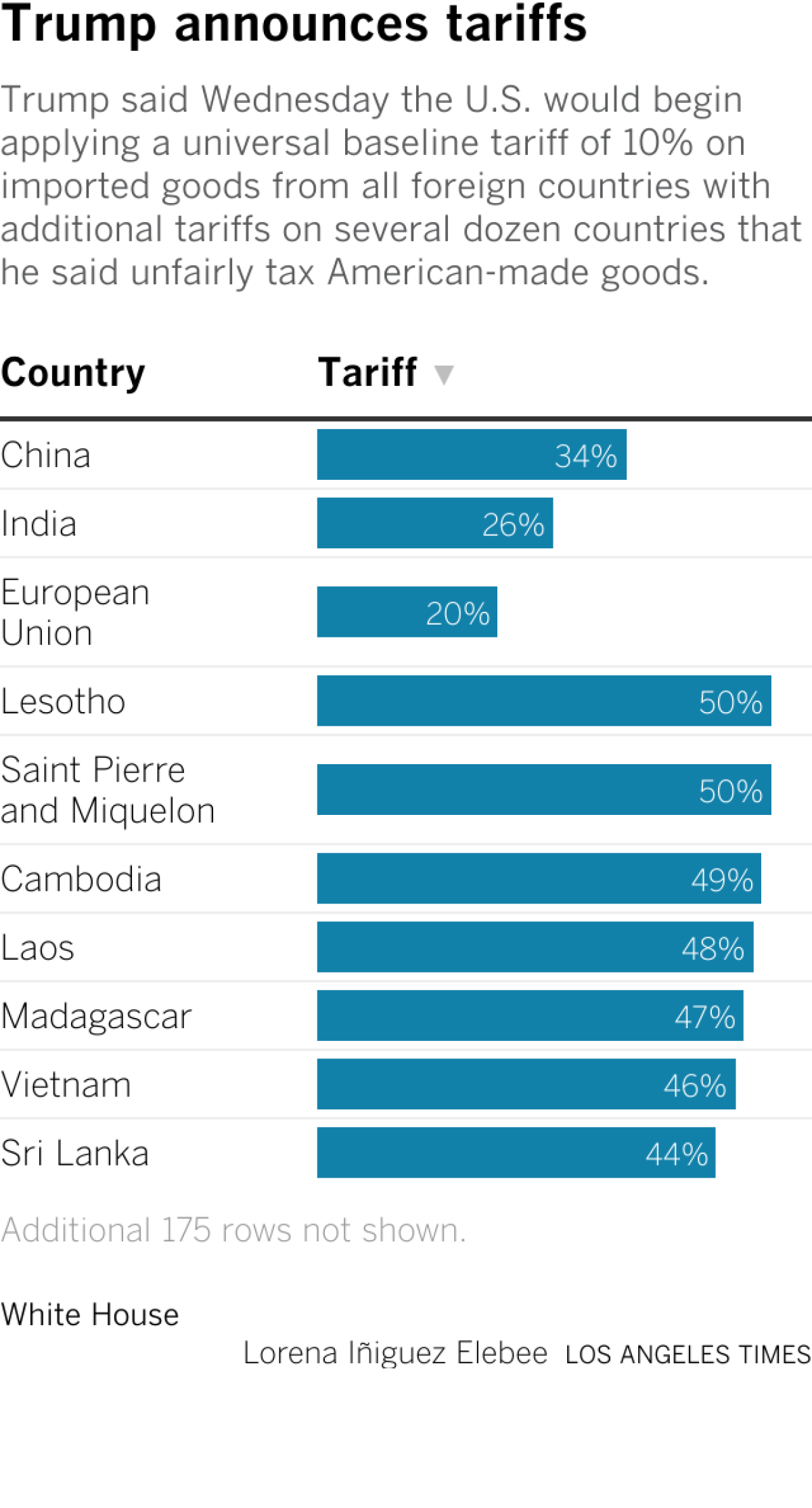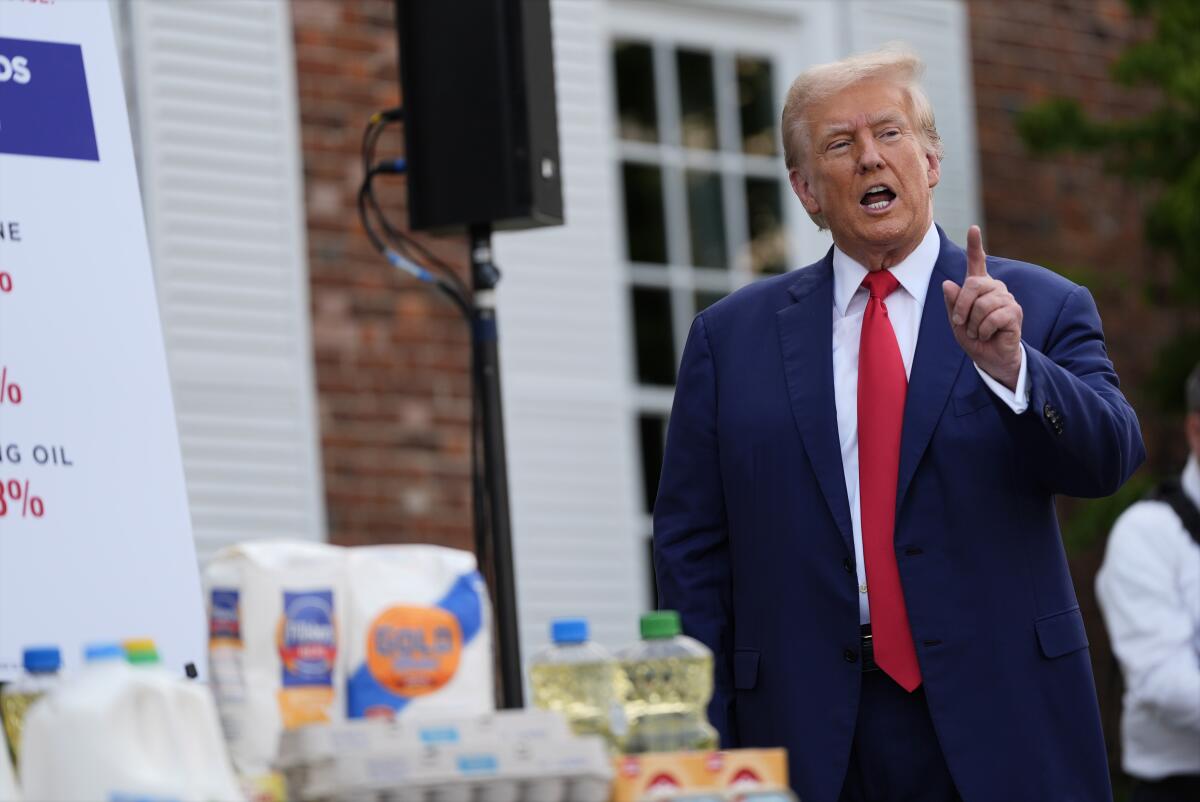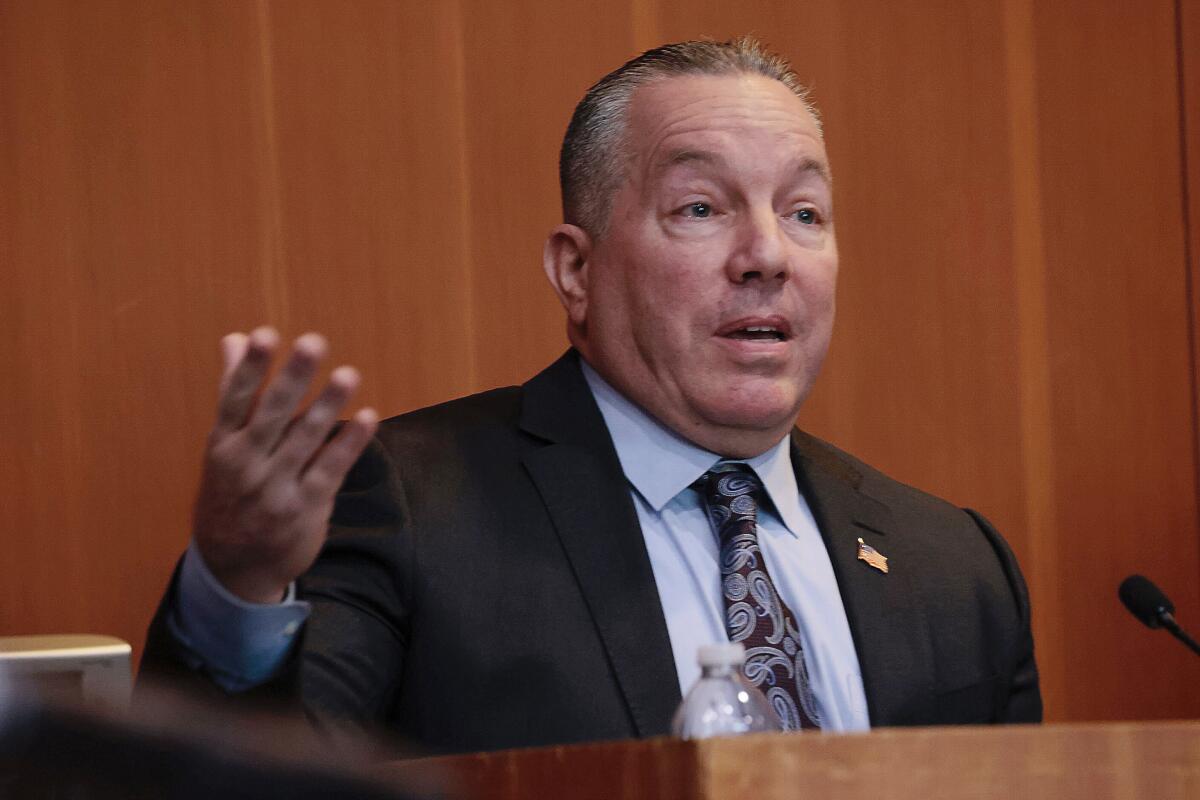WASHINGTON — The Trump administration is facing global blowback after announcing a dramatic series of tariffs on countries around the world, with U.S. adversaries and allies alike promising crushing responses that could devastate the American economy.
Stocks plummeted at the market’s close Thursday, with the S&P 500, Dow Jones industrial average and Nasdaq Composite all reaching their lowest one-day drops since the economy tanked at the outset of the COVID-19 pandemic in 2020.
Trump shook off the reaction, predicting that markets and the U.S. economy “are going to boom.”
“I think it’s going very well,” Trump said to reporters Thursday, asked about the market reaction on the way to a golf tournament. Countries the world over, he added, “have taken advantage of us for many, many years.”
Trump also indicated that future tariffs on pharmaceuticals and chips are expected and suggested they may be used as a bargaining chip with other countries. “We put ourselves in the driver’s seat,” he said. “If we would have asked these countries to do us a favor, they would have said no. Now they will do anything for us.”
At a Rose Garden ceremony at the White House on Wednesday, Trump announced a 10% base rate hike on nearly all foreign imports. Still other countries and trading blocs, including China, the European Union, South Korea and Japan, were hit with higher rates.
Already, China — the world’s largest trading nation that Trump slapped with additional tariffs, totaling 54% — has vowed to retaliate, urging the United States to reverse course.
In a news conference Thursday morning, officials with China’s Ministry of Commerce slammed American “protectionism,” while stressing the importance of investing in South Korea, Japan and the European Union, according to the South China Morning Post.
A spokesman said that China would continue talks with the United States over trade agreements, the newspaper reported. Trump again floated the idea Thursday afternoon of tying a sale of TikTok, from the Chinese-owned ByteDance company, to a deal to reduce tariffs.
“We’re now preparing for further countermeasures to protect our interests and our businesses if negotiations fail,” Ursula von der Leyen, president of the European Commission, said in remarks late Wednesday evening from Uzbekistan, calling Trump’s announcement “a major blow to the world economy.”
In Paris, French officials said they were also pushing the rest of the European Union to agree on a response that would target U.S. digital businesses, particularly Big Tech firms, core to the U.S. and California economies.
“A two-phase European response is now underway,” a French official told The Times. By mid-April, the official said the European Union would unveil its initial response on U.S. steel and aluminum exports, followed by a more comprehensive, “sector-by-sector” response rolled out by the end of the month.
“Nothing should be off the table,” the official said, including “responses in the digital services sector.”
And the British trade secretary said the United Kingdom, one of America’s closest allies with strong ties to the Trump administration, would work over the next month to see whether it could negotiate an exemption from U.S. tariffs, or otherwise deliver retaliatory taxes. The U.K. government published a webpage asking businesses for input on identifying which American products London should implement tariffs on, with the most minimal impact on the British economy.
“That is what I see, that Donald Trump will buckle under pressure, that he will correct his announcements under pressure,” Robert Habeck, Germany’s economy minister, told reporters Thursday, “but the logical consequence is that he then also needs to feel the pressure.”
The Trump administration initially said it was imposing “reciprocal” tariffs in direct response to each country’s taxes on imported U.S. goods: “They do it to us, and we do it to them,” Trump said. “Very simple.”
But the rates put forward by the White House show the administration’s rates have little to do with foreign tariffs at all. Instead, the administration used a calculation factoring in a country’s trade deficit with the United States and its exports to the U.S. market.
The lead-up to the tariffs announcement Wednesday, which Trump dubbed “Liberation Day,” caused tremendous volatility in the stock market in recent weeks, especially after the administration repeatedly established and then paused tariffs against Canada and Mexico.
Those countries escaped Wednesday’s tariffs announcement, but continue to endure previous import taxes that Trump placed on them. Commerce Secretary Howard Lutnick told CNN Thursday that this round of tariffs is made to last.
“I don’t think there’s any chance that President Trump’s going to back off his tariff. This is the reordering of global trade,” he said Thursday. “The world should stop exploiting the United States of America.”
Treasury Secretary Scott Bessent said in a CNN interview Wednesday evening that other countries should “sit back, take a deep breath, don’t immediately retaliate.”
White House officials have acknowledged they expect initial turbulence from the new policy, but Trump has said the disruptions will be worth it when “jobs and factories will come roaring back into our country.”
Trump’s Agriculture secretary, Brooke Rollins, acknowledged that pain was coming to U.S. farmers and agricultural businesses, already strapped before the tariff announcement and now facing lower prices for their goods and higher prices for their equipment and raw materials.
“There will be a short time of uncertainty, and then we’ll move back to the prosperity that this president has envisioned,” Rollins said to reporters at the White House on Thursday.
Already, American consumers have begun tightening their purse strings as they brace for the tariffs’ economic impact.
Consumer sentiment — which measures American expectations for their personal finances, business conditions, unemployment and inflation — fell for a third consecutive month in March, according to the University of Michigan.
U.S. consumers have a grim outlook for the economy this year, with nearly two-thirds of respondents saying they expect unemployment to rise — the highest such percentage since 2009, the report noted.
The report also found that more consumers are anticipating a rise in inflation. One of their main causes for concern? Tariffs.
Joanne Hsu, director of the surveys of consumers at the University of Michigan, said that without confidence in a reliable income or high asset wealth, consumers are more likely to cut spending. That, in turn, can cause the economy to shrink.
“When people don’t feel good about the economy, they pull back,” Hsu said. “They’re not willing to go on the vacations, they’re not willing to start new businesses. They’re not willing to take risks or to spend a lot,” she said.
Consumers pulling back on spending becomes problematic, she added, “because if they don’t spend and businesses don’t make money, then businesses will need to start laying people off, and it can become a cascading problem. The reason why sentiment matters is because people are making decisions based on that.”
Democrats have balked at the extent of the tariffs. Late Wednesday, the Senate delivered a rare rebuke to Trump’s tariffs agenda when the body passed a resolution that would end the national emergency on the fentanyl crisis, which Trump declared to substantiate his tariffs against Canada.
Four Republicans — Sens. Lisa Murkowski of Alaska, Susan Collins of Maine, Mitch McConnell of Kentucky and Rand Paul of Kentucky — joined with all Democrats to pass the resolution, which next goes to the House, where it has little chance of passing the Republican-led chamber.
“The stock market is down since the beginning of the year, the cost of everything from groceries to housing continues to rise. Americans’ retirement funds have shrunk, and the chances of a recession is up,” said Sen. Alex Padilla (D-Calif.) from the Senate floor Wednesday. “That sure doesn’t feel like a liberation to me.”



